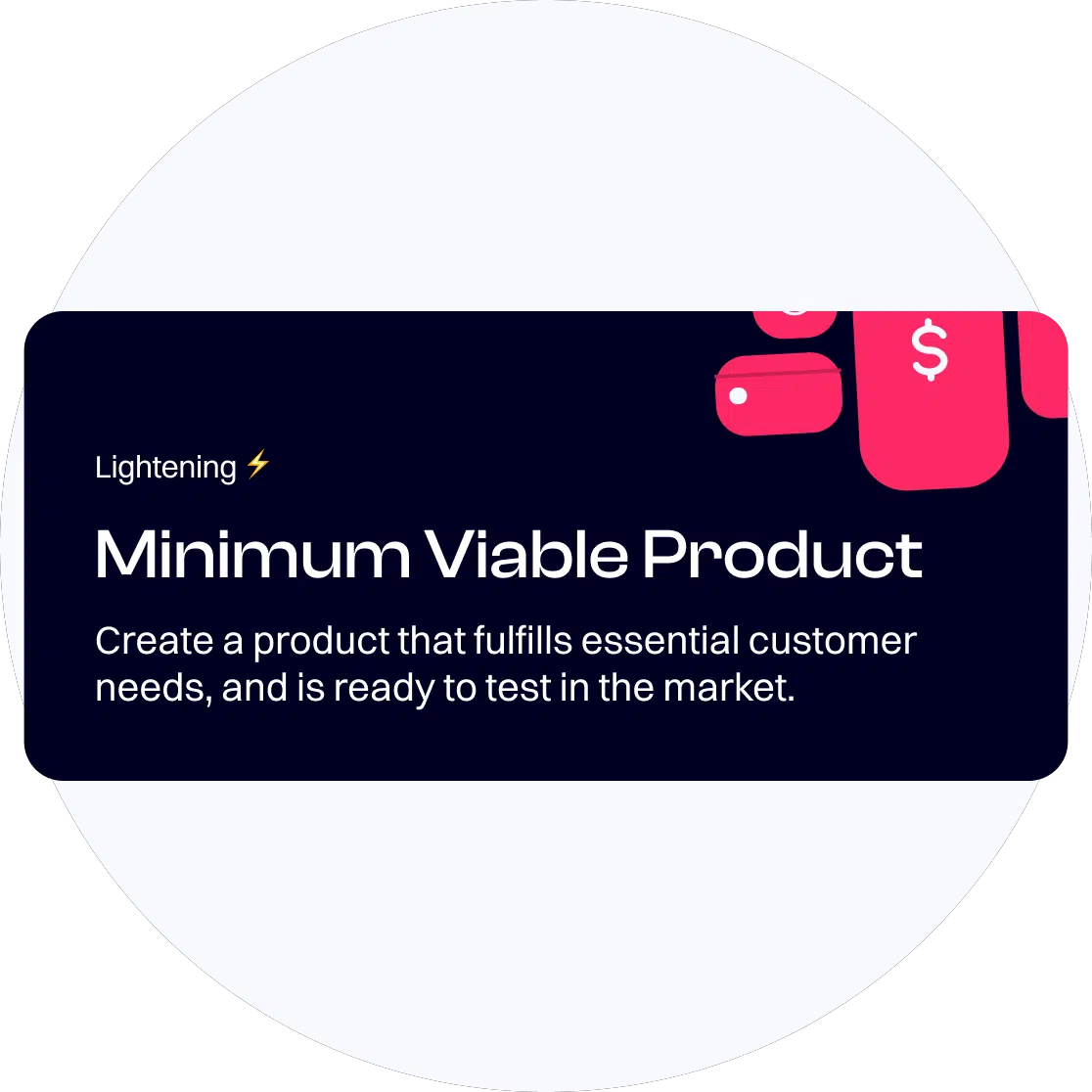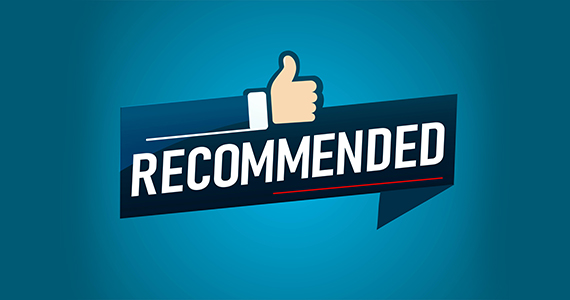Select your feature set, strategize your launch, and develop your MVP in a sustainable manner to generate traction and gather feedback for the complete version of your product.

What is an MVP?
MVP, which stands for Minimum Viable Product, is a core principle in product development. It refers to the initial version of a product that encompasses only its essential features, sufficient to provide value to early adopters and collect critical feedback. The MVP development process focuses on creating this simplified version with the primary aim of assessing its market viability.
Our Deliverables

Product Requirements Doc
A comprehensive outline that details the required features, functionalities, and specifications essential for the development of a new product or feature.

Comprehensive Roadmap
A thorough plan that outlines the strategic direction and timeline for the development and launch of products or projects.

Prioritization Frameworks
Organized techniques employed to assess and prioritize tasks or projects according to their significance, urgency, and influence on overarching goals.

Recommended Actions
Clear, recommended actions or strategies aimed at achieving specific outcomes or resolving particular challenges.
Understanding MVP Development
The MVP development concept revolves around the principle that swiftly launching a simplified version of your product is more advantageous, allowing for subsequent iterations and enhancements based on user feedback. This strategy enables you to validate your product idea, perform usability testing, evaluate market demand, and minimize the risk of heavily investing resources into a product that might not align with user expectations.
Key Elements of MVP Development
MVP development encompasses several essential components that set it apart from conventional product development:
- Minimum Features: An MVP contains only the critical features and functionalities necessary to address a particular problem or fulfill a specific need.
- Rapid Development: Quickness is vital in MVP development. The objective is to bring the product to market swiftly to begin gathering feedback.
- User-Centric: MVPs are crafted with an emphasis on resolving user pain points and delivering a meaningful solution.
- Feedback-Driven: Collecting user feedback is fundamental to MVP development, as it guides future iterations and enhancements.
- Cost-Efficiency: By focusing on core features and enabling a quick launch, MVP development aids in conserving resources.
Benefits of MVP Development Services
Utilizing MVP development services can offer numerous advantages throughout your product journey:
- Risk Mitigation: By exploring the market with minimal investment, you lessen the chance of creating a fully-featured product that might not gain market acceptance.
- Cost Efficiency: MVP development reduces upfront investment while enhancing the likelihood of success.
- User Validation: Gathering early feedback from users confirms your product idea and informs subsequent development efforts.
- Reduced Risk: By piloting an MVP, you lower the risk of creating a complete product that may struggle to gain traction.
- Speed to Market: MVP development hastens the launch process, allowing you to start collecting real-world data more quickly.
- Iterative Improvement: Ongoing iterations driven by user feedback result in a product that better meets market demands.
Components of Successful MVP Development Services
Effective MVP development consists of several key components:
- Market Research: Recognizing a real problem or need in the market is essential for MVP development. Thorough market research enables you to identify your target audience and their specific pain points.
- Feature Prioritization: Determining which features are essential to solving the identified problem is crucial. Focus on the minimum set of features required for a functional solution.
- Prototyping: Creating a prototype or mockup of your MVP helps visualize the user experience and functionality before full development begins.
- Development: This stage focuses on rapidly and effectively constructing the essential features of your MVP.
- User Testing and Feedback: Releasing your MVP to a select group of early adopters and gathering their feedback is crucial for implementing necessary enhancements.
- Iteration: Use user feedback to make ongoing enhancements that improve the product’s functionality, usability, and overall value.
- Scaling: Once your MVP has validated the concept and gained traction, you can begin scaling up and expanding your product.
How MVP Development Services Can Help
MVP development services provide guidance and expertise at every stage of the MVP development process:
- Expert Guidance: Seasoned MVP development teams offer support throughout the entire journey, from validating concepts to collecting user feedback.
- Rapid Development: Experts optimize the development workflow, guaranteeing a swift launch of your MVP.
- User-Centered Design: MVP development services prioritize user needs, crafting a user-focused MVP that tackles genuine pain points.
- Iterative Improvement: Ongoing updates informed by user feedback guarantee that your MVP adapts to effectively meet market demands.
- Cost Efficiency: MVP development services enable efficient resource allocation by emphasizing essential features and reducing unnecessary expenses.
In summary, MVP development is a strategic method in product development that focuses on building a streamlined version of a product featuring essential functionalities to assess its feasibility and collect user feedback.
MVP development services provide specialized knowledge and assistance at every stage, aiding in the validation of your product concept, minimizing risks, and facilitating a streamlined market entry. By emphasizing user feedback and ongoing enhancements, MVP development lays the groundwork for a successful product trajectory.
The true power of CapX Corporation lies in our people: a highly skilled team of certified IT professionals ready to steer your IT transformation. Our 92% customer-retention rate reflects our ability to equip businesses with the essential tools to stay competitive, secure, and forward-thinking.
